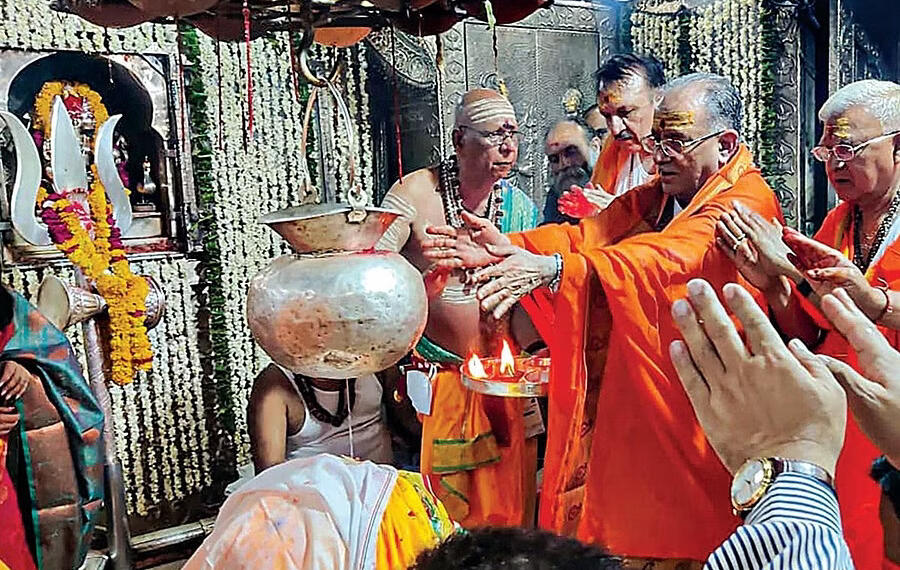Secularism traditionally denotes neutrality towards religion, but in countries like India and Nepal with Hindu majorities, it often intertwines with religious identity. Hindus practicing their cultural traditions are labelled threat to secularism for no reason by the so-called advocates of secularism, contrasting with followers of other faiths. Under the guise of secularism, large-scale conversions of Hindus occur, facilitated by misinterpretations and misuses of the concept.
In Nepal, which was once a Hindu nation, the concept of ‘secularism’ is widely misunderstood and misused. The situation has become so severe that even Nepal’s Maoists are concerned about the “misuse” and broad interpretation of the secular provisions in the constitution. This may be surprising to India, but it is true.
Misuse of Secularism
Leaders of Nepal’s largest communist party, the Nepal Communist Party (Unified Marxist-Leninist) or CPN-UML, are raising their voices against the misuse and misinterpretation of secularism. This new constitution, which was implemented almost nine years ago, includes secularism.
Like in India, Christian missionaries and Islamic preachers in Nepal are using secularism to convert Hindus to Christianity and Islam. Additionally, secularism is being used as an excuse to attack the Sanatan Dharma.
CPN-UML’s Reaction
Leaders of Nepal’s second-largest party, CPN-UML, have spoken openly on this issue. The party’s Deputy General Secretary, Pradeep Gyawali, said in an interview with a major English newspaper that some sections of society have tried to misuse and misinterpret the new constitutional provisions. Gyawali, who is close to the party’s president Khadga Prasad Sharma Oli, stated that some people view secularism as a free pass for widespread religious conversion and use it as an excuse to attack our ancient Sanatan Dharma.
Communist Leaders’ Views on Secularism
CPN-UML’s Senior Vice President, Ishwar Pokhrel, supported Gyawali’s views and said that secularism is being misused for large-scale conversions. He mentioned that Christian missionaries are taking advantage of poverty, innocence, and backwardness to carry out large-scale conversions, which need to be stopped.
CPN-UML’s Vice President and former Finance Minister, Surendra Pandey, also stated that the misuse and misinterpretation of secularism is provoking a reaction among Hindus.
Maoist Leaders’ Concerns
Nepal’s Maoists are also worried about the misuse of secular provisions. CPN-MC MP Janardan Sharma said that large-scale conversions to Christianity are creating social tension and disharmony, which must be stopped. He added that secularism means everyone should have the freedom to follow their religion, not open conversion.
Other Parties’ Reactions
Other political parties like the Nepali Congress and the National Independent Party (RSP) are also concerned about the misuse of secularism. Nepali Congress Central Working Committee member Shekhar Koirala stated that some people are mocking and insulting Sanatan Dharma under the influence of Christian missionaries. He suggested that there might be a need to amend the constitution to stop this wrong trend.
Demand for a Hindu Nation
The Rashtriya Prajatantra Party (RPP) has openly advocated for making Nepal a ‘Hindu nation’ again. RPP President Kamal Thapa said that secularism has harmed us immensely, as missionaries have used it as a cover for soul harvesting. He stated that the only way to stop this is to make Nepal a Hindu nation again.
Conclusion
Nepal’s leaders strongly believe that strict laws are needed to prevent the misuse of secularism. Unlike Indian communists, Nepal’s communists are not apologetic about their religion. They regularly visit temples and celebrate religious festivals. Secularism does not just mean religious freedom, but also the protection of cultural and religious traditions.
In Nepal, it is necessary to understand and implement secularism in the right context. In this regard, amendments to the constitution and strict laws are required to prevent the misuse of secularism and to ensure respect for all religions.
ALSO READ: SC New Order on Divorced Muslim Women and the Controversy!
